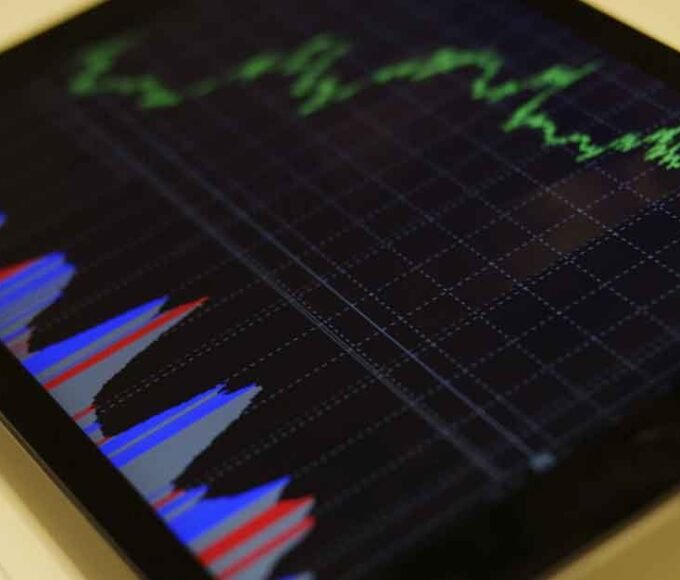Cryptocurrency has taken the world by storm, revolutionizing how we think about traditional finance. One aspect of this digital revolution is future trading in crypto, which offers exciting opportunities for investors and traders alike. Future trading involves speculating on the price movements of cryptocurrencies at a predetermined date in the future. In this comprehensive guide, we will delve into the world of future trading in crypto, exploring its potential and providing valuable insights for those looking to enter this dynamic market.
What is future trading and how does it work?
Future trading is a form of derivative trading where two parties agree to buy or sell an asset, such as a cryptocurrency, at a predetermined price and date in the future. It provides an avenue for investors to profit from the price fluctuations of cryptocurrencies without actually owning them. Future contracts are standardized agreements that are traded on regulated exchanges, ensuring transparency and liquidity in the market.
To illustrate how future trading works, let’s consider a hypothetical scenario. John believes that the price of Bitcoin will increase in the next three months, while Sarah believes that the price will decline. They enter into a future contract, agreeing to buy and sell Bitcoin at a specified price after three months. If the price of Bitcoin indeed rises, John can sell his contract at a higher price, thereby making a profit. On the other hand, if the price falls, Sarah can buy the contract at a lower price, profiting from the decline in price. It is important to note that future trading involves both long and short positions, allowing traders to profit from both upward and downward price movements.
Benefits of future trading in crypto
Future trading in crypto offers several benefits that make it an attractive investment option. Firstly, it provides an opportunity for investors to diversify their portfolio. Cryptocurrencies are highly volatile assets, and by engaging in future trading, investors can hedge their risks and potentially earn profits even during market downturns. Moreover, future trading offers leverage, allowing traders to control a larger position with a smaller capital investment. This amplifies potential gains, but it is important to note that it also increases the risk of losses.
Another advantage of future trading in crypto is the ability to profit from both upward and downward price movements. Unlike traditional stock markets, where short-selling is often restricted or prohibited, crypto future contracts allow traders to take advantage of falling prices by selling contracts without owning the underlying asset. This flexibility opens up new opportunities for traders to profit in both bull and bear markets.
Furthermore, future trading in crypto provides liquidity and price discovery. By trading on regulated exchanges, traders have access to a wide range of buyers and sellers, ensuring that they can enter and exit positions quickly and at fair prices. This liquidity also enables traders to implement various strategies, such as arbitrage, which takes advantage of price discrepancies across different exchanges.
Risks and challenges in future trading
While future trading in crypto offers exciting opportunities, it is not without its risks and challenges. One of the primary risks is the high volatility of cryptocurrencies. The price of cryptocurrencies can fluctuate dramatically within short periods, leading to significant gains or losses. This volatility can be attributed to various factors, such as market sentiment, regulatory developments, and technological advancements. Traders must be prepared to navigate these price swings and manage their risks effectively.
Another challenge in future trading is the potential for market manipulation. The crypto market is still relatively young and less regulated compared to traditional financial markets. This creates opportunities for market manipulators to influence prices and exploit unsuspecting traders. It is crucial for traders to conduct thorough research and choose reputable exchanges to minimize the risk of falling victim to manipulation.
Additionally, future trading in crypto requires a deep understanding of technical analysis and market trends. Traders must be able to interpret charts, indicators, and patterns to make informed trading decisions. It is also essential to stay updated on news and developments in the crypto space, as they can have a significant impact on price movements. Failure to stay informed can lead to poor trading decisions and potential losses.
Key factors to consider before getting started with future trading
Before diving into future trading in crypto, there are several key factors that traders should consider. Firstly, it is important to determine your risk tolerance and investment goals. Future trading involves a certain level of risk, and traders should only invest what they can afford to lose. Setting realistic goals and establishing a risk management strategy is essential to navigate the ups and downs of the market.
Understanding the fundamentals of the crypto market is also crucial. Traders should familiarize themselves with the underlying technology and the factors that drive cryptocurrency prices. This knowledge will enable them to make informed trading decisions and identify potential opportunities.
Moreover, choosing the right exchange is paramount for successful future trading. Look for exchanges that are regulated, offer robust security measures, and have a good reputation in the industry. It is also advisable to consider the range of cryptocurrencies and future contracts available on the exchange, as well as the fees and trading volumes.
Understanding the crypto market and its volatility
The crypto market is known for its extreme volatility, which presents both opportunities and challenges for future traders. Understanding the factors that contribute to this volatility is essential for making informed trading decisions.
One of the primary drivers of crypto market volatility is investor sentiment. Cryptocurrencies are highly speculative assets, and their prices are often influenced by market sentiment and emotional reactions. Positive news, such as regulatory developments or institutional adoption, can drive prices up, while negative news can lead to sharp declines. Traders must stay updated on the latest news and developments to anticipate potential price movements.
Another factor that contributes to volatility is the relatively small market size of cryptocurrencies compared to traditional financial markets. The crypto market is still in its nascent stages, and as a result, it is more susceptible to large price swings caused by market manipulation or large transactions. This volatility can create opportunities for traders to profit but also increases the risk of losses.
Furthermore, technological advancements and regulatory developments can have a significant impact on crypto market volatility. Innovations such as decentralized finance (DeFi) or new regulations can cause significant price movements as the market adjusts to these changes. Traders must stay informed about the latest technological and regulatory developments to adapt their trading strategies accordingly.
Strategies and techniques for successful future trading in crypto
Successful future trading in crypto requires a combination of technical analysis, risk management, and a well-defined trading strategy. Here are some strategies and techniques that can help traders navigate the crypto market:
- Trend following: This strategy involves identifying and following trends in the market. By analyzing price charts, traders can identify upward or downward trends and enter positions accordingly. Trend following strategies can be implemented through various technical indicators, such as moving averages or the Relative Strength Index (RSI).
- Breakout trading: Breakout trading involves entering positions when the price of a cryptocurrency breaks through a significant support or resistance level. This strategy aims to capitalize on the momentum created by the breakout and can be combined with other indicators to confirm the validity of the breakout.
- Risk management: Effective risk management is crucial in future trading. Traders should determine their risk tolerance and set stop-loss orders to limit potential losses. Additionally, diversifying the portfolio and allocating capital wisely can help mitigate risks.
- Fundamental analysis: While technical analysis is commonly used in future trading, fundamental analysis can provide valuable insights into the long-term prospects of cryptocurrencies. Traders should consider factors such as the team behind the project, the technology, and the market demand to make informed trading decisions.
- Practice and continuous learning: Future trading in crypto is a skill that requires practice and continuous learning. Traders should start with small positions and gradually increase their exposure as they gain experience. Additionally, staying updated on market trends, attending webinars or workshops, and joining trading communities can provide valuable insights and support.
Legal and regulatory considerations for future trading in crypto
As future trading in crypto gains popularity, it is important to consider the legal and regulatory landscape surrounding this market. The regulatory environment for cryptocurrencies varies across jurisdictions, and traders should ensure compliance with the relevant laws and regulations.
One key consideration is the legality of future trading in crypto in your jurisdiction. Some countries have embraced cryptocurrencies and established clear regulations, while others have imposed restrictions or outright bans. Traders should familiarize themselves with the legal framework in their jurisdiction and seek legal advice if needed.
Additionally, it is important to comply with anti-money laundering (AML) and know-your-customer (KYC) regulations. Exchanges and trading platforms often require users to undergo identity verification processes to prevent illicit activities and ensure the integrity of the market. Traders should be prepared to provide the necessary documentation and information to comply with these requirements.
Resources and tools for learning and staying updated on future trading in crypto
With the ever-evolving nature of the crypto market, it is essential for future traders to stay updated on the latest trends, news, and trading strategies. Fortunately, there are numerous resources and tools available to help traders enhance their knowledge and make informed trading decisions.
Online courses and educational platforms provide comprehensive learning materials on future trading in crypto. These courses cover various topics, from technical analysis to risk management, and are designed to cater to traders of all skill levels. Additionally, webinars and workshops conducted by industry experts offer valuable insights and practical tips for successful future trading.
Keeping up with the latest news and developments in the crypto space is crucial. Crypto news websites, forums, and social media platforms provide real-time updates on market trends, regulatory changes, and technological advancements. Traders should follow reputable sources and engage with the community to stay informed.
Moreover, there are several trading tools and platforms that offer advanced charting features, technical indicators, and trading signals. These tools can help traders analyze the market, identify potential opportunities, and execute trades more efficiently. It is important to choose reliable and secure platforms that align with your trading strategy and requirements.
Conclusion
Future trading in crypto presents exciting opportunities for investors and traders to profit from the price movements of cryptocurrencies. By understanding the fundamentals of future trading, considering the risks and challenges, and implementing effective trading strategies, individuals can navigate this dynamic market with confidence. It is important to stay updated on market trends, continuously learn and improve trading skills, and comply with the legal and regulatory requirements. With the right knowledge, tools, and mindset, future trading in crypto can be a rewarding venture.
















